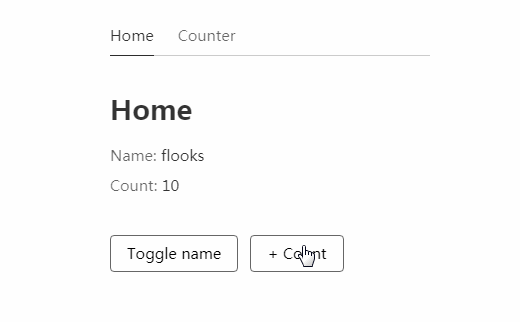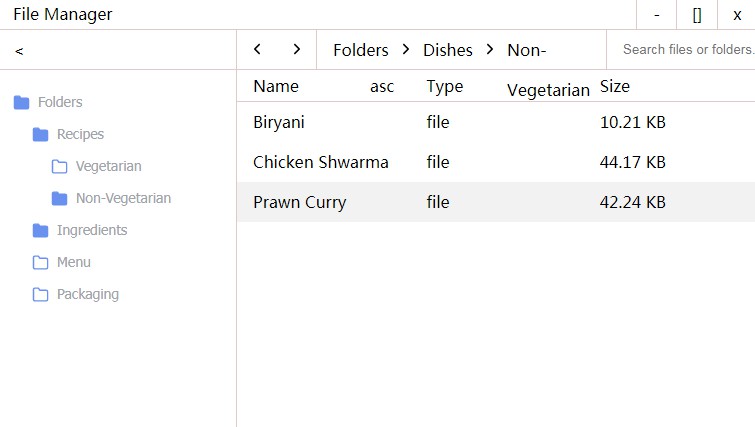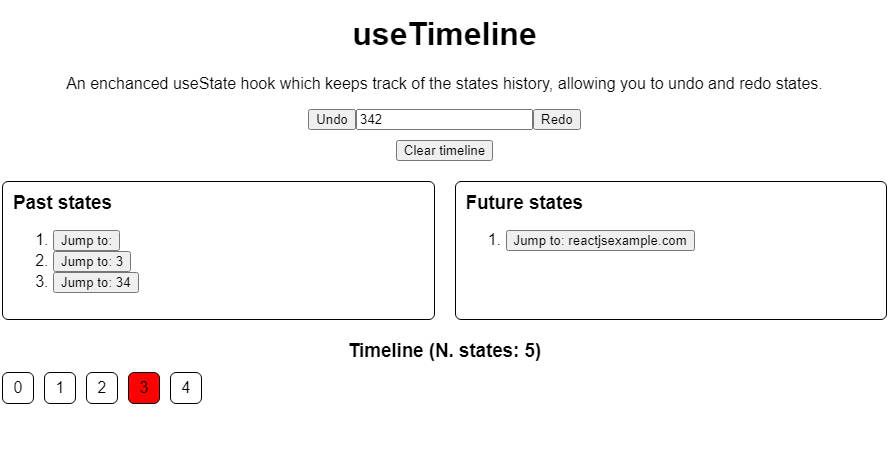flooks
A state manager for React Hooks. Maybe the simplest.
Install
yarn add flooks
or
npm install flooks
Usage
import { setModel, useModel } from 'flooks';
const counter = {
state: {
count: 0,
},
actions: ({ model, setState }) => ({
increment() {
const { count } = model();
setState({ count: count + 1 });
},
decrement() {
const { count } = model();
setState({ count: count - 1 });
},
async incrementAsync() {
const { increment } = model();
await new Promise((resolve) => setTimeout(resolve, 1000));
increment();
},
}),
};
setModel('counter', counter);
function Counter() {
const { count, increment, decrement, incrementAsync } = useModel('counter');
return (
<>
Count: {count}
<button onClick={increment}>+</button>
<button onClick={decrement}>-</button>
<button onClick={incrementAsync}>+ async{incrementAsync.loading && '...'}</button>
</>
);
}
API
setModel()
setModel(name, model);
Accepts a name string and an model object, initialize the model.
The model object needs to contain a state object and an actions function.
useModel()
const { someState, someAction } = useModel(name);
A React Hook. Accepts a name, returns the initialized model with all its states and actions.
({ model, setState }) => realActions
actions: ({ model, setState }) => ({
someAction() {},
});
The argument of actions contains two functions, model() and setState().
model()
const { someState, someAction } = model(name?);
Returns the same as useModel(), but when get own model, name can be omitted.
i.e. model() for own model, model('other') for other models.
setState()
setState(payload);
Used to update own model's state with the payload object, can't update other models'.
FAQ
Auto loading?
actions: ({ model, setState }) => ({
async someAsyncAction() {},
});
When an action is async, someAsyncAction.loading can be use.
Code splitting?
Supported naturally. Call setModel() in components, then use libraries like loadable-components.
Set models together?
import { setModel } from 'flooks';
import a from '...';
...
const models = { a, b, c };
Object.entries(models).forEach(([name, model]) => {
setModel(name, model);
});
This is not recommended. Call setModel() separately in components, which is more clear and flexible.
Philosophy
1. Our philosophy is decentralization, so we recommend to bind a model and a route entry component as one module, call setModel() in the component to bind two.
2. No need to add a file like store.js or models.js, because no need to distribute the store from top now. Without the centralized store, just the modules consisting of components and models in the lower level.
3. A model has its own space, with useModel() and model(), all other models can be reached. Models are independent, but also connected.
4. Don't initialize a model multiple times using setModel(), if have a "common" model used in several places, recommend to to initialize it in an upper component, such as App.jsx.
5. That's all, enjoy it~





